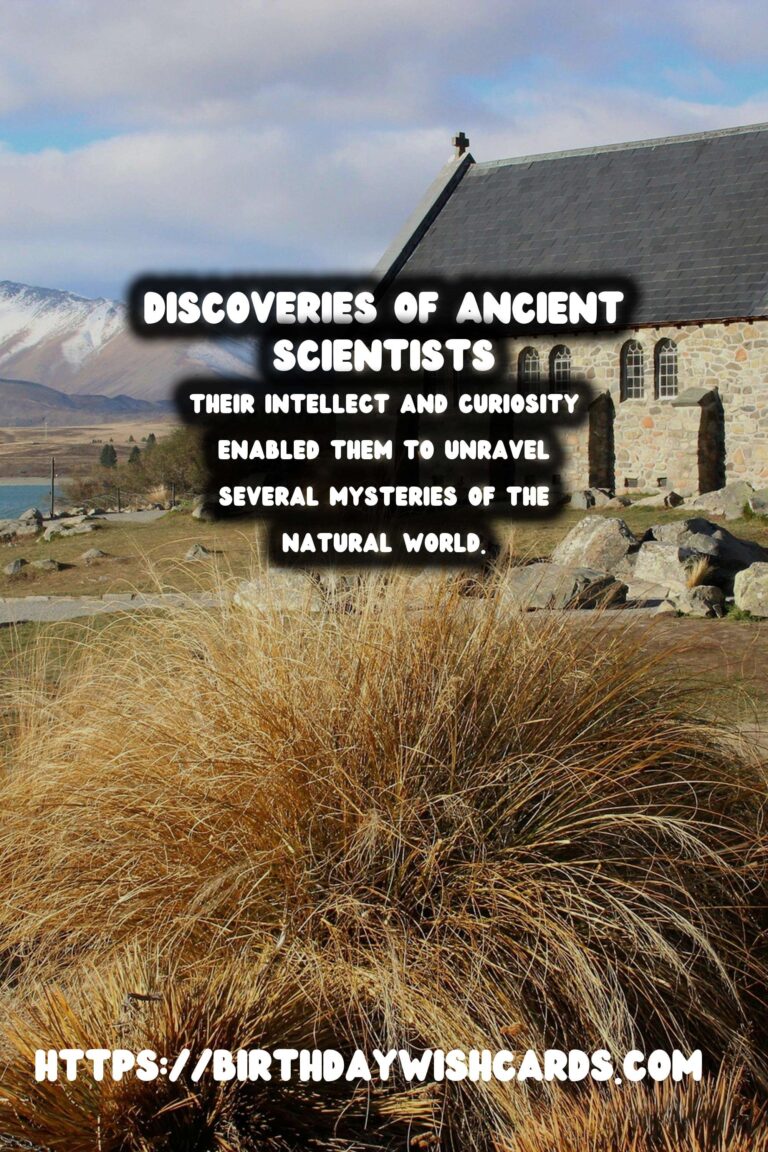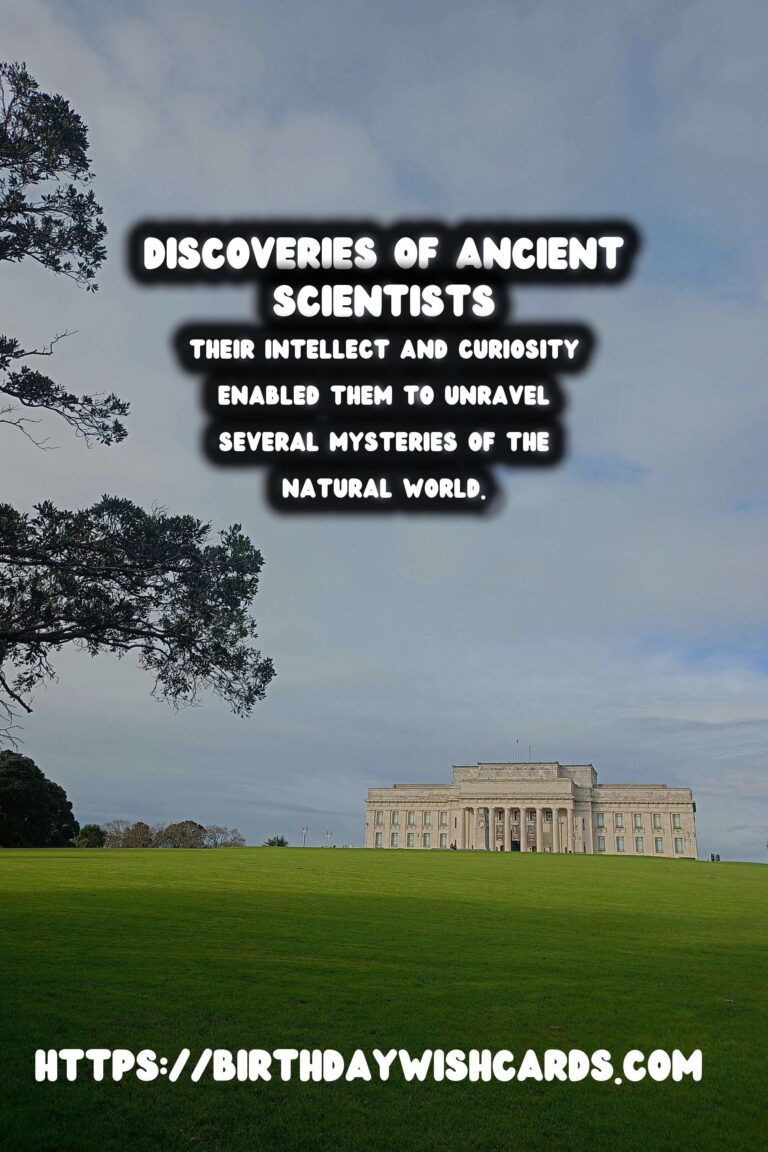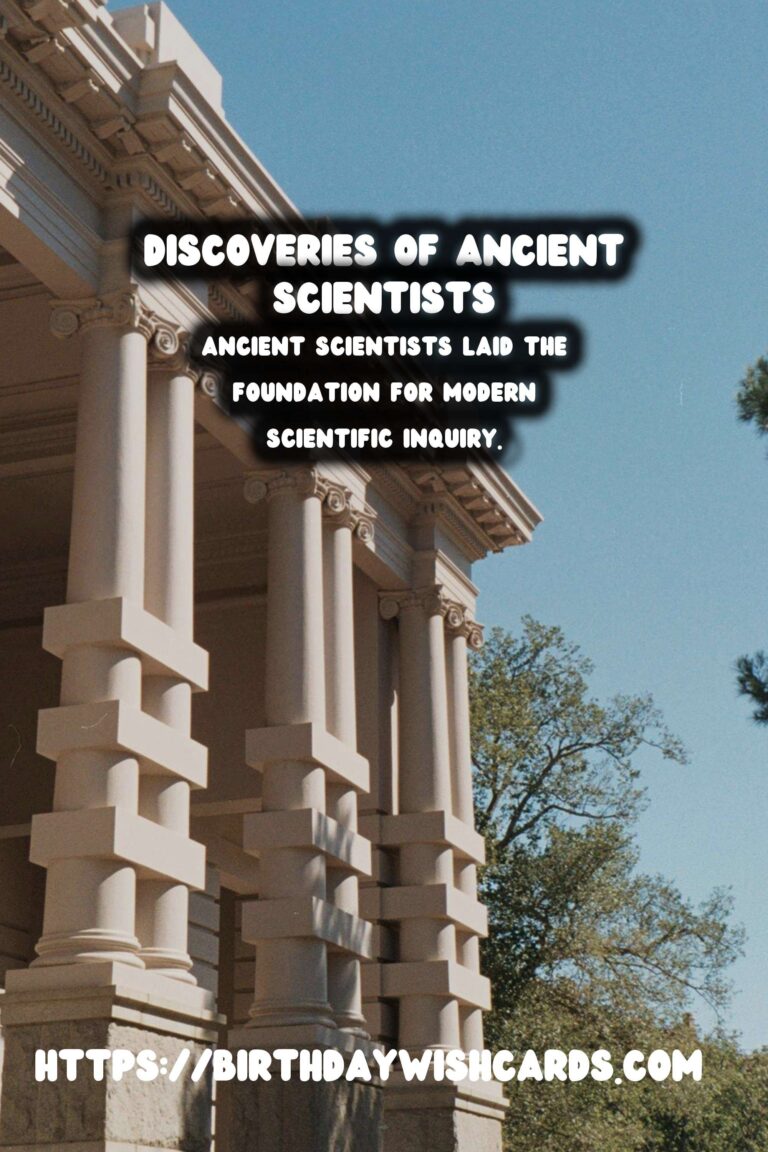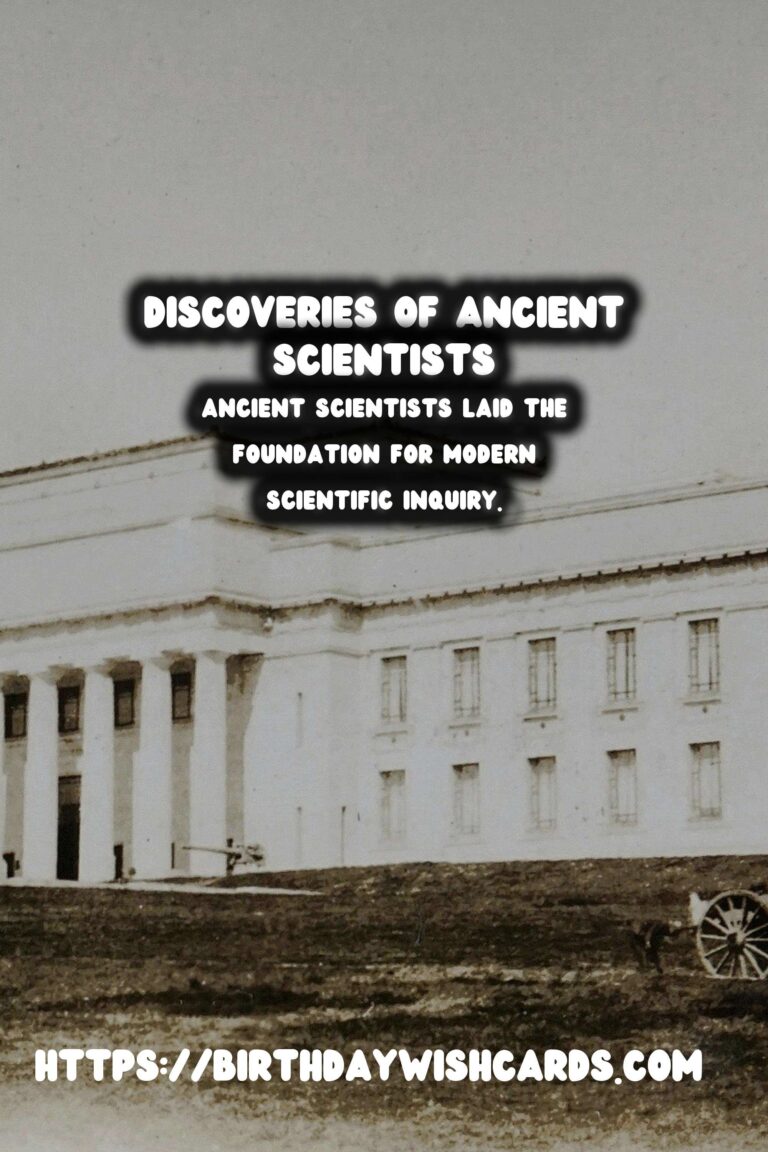
Ancient scientists laid the foundation for modern scientific inquiry. Their intellect and curiosity enabled them to unravel several mysteries of the natural world, laying down principles that have withstood the test of time and laid the groundwork for the technological advances we enjoy today.
In this comprehensive journey, we will traverse the remarkable paths of ancient scientists, exploring their groundbreaking discoveries and enduring legacies.
The Pioneering Minds
It is an understatement to say that ancient scientists were ahead of their time. From the earliest mathematicians who decoded the patterns of nature to the physicists who defined the fundamental laws of motion, the contributions of these brilliant minds were monumental.
The work of individuals such as Archimedes, Pythagoras, and Hippocrates transcended their era, influencing countless generations and shaping the very fabric of scientific thought. Their relentless pursuit of knowledge underscored humanity’s capacity for understanding the world through observation and reasoning.
Mathematical Marvels
Mathematics has been described as the language of the universe, and ancient mathematicians were its first native speakers. The Greeks, known for their intellectual prowess, developed advanced mathematical theories that are still learned and applied today.
Euclid, often referred to as the ‘Father of Geometry,’ composed ‘The Elements,’ an authoritative text on geometry that remained unchallenged for centuries. Meanwhile, Pythagoras established the Pythagorean theorem, an elemental aspect of trigonometry that remains relevant in today’s educational curricula across the globe.
The precision and abstraction observed in the works of these mathematicians have had an indelible impact on the evolution of mathematics, inspiring further advancements and discoveries.
Physics and the Natural Sciences
The ancient era is marked by significant contributions to physics and natural sciences, as well. Archimedes of Syracuse was more than just a mathematician; he was also a pioneering physicist.
With the famous exclamation ‘Eureka!’ Archimedes revealed the principle of buoyancy, establishing foundational concepts of fluid mechanics. His lever and pulley inventions also demonstrated the power of simple machines, transforming the way humans performed labor-intensive tasks.
Beyond Greece, ancient China and the Islamic Golden Age also bore luminaries like Zhang Heng and Ibn al-Haytham, whose influence permeated fields of astronomy, optics, and engineering. These early scientists observed celestial patterns and delved into the intricacies of the human body, shedding light on matters that propelled scientific thought forward.
Addressing Philosophical Questions
Science and philosophy were once intertwined, their boundaries undefined to the ancient mind. Philosophers like Aristotle did not differentiate between philosophical and empirical inquiry, allowing them to tackle a wide array of existential questions through observation and logical deduction.
Aristotle’s classification of living organisms laid the groundwork for biological sciences, while his speculations on the cosmos prompted a more structured examination of stars and planets.
Medical Innovations
The transition from mysticism to science in medicine was marked by the emergence of individuals like Hippocrates and Galen. They pioneered systematic approaches to diagnosing and treating patients, incorporating empirical observations that steered away from superstition.
The Hippocratic Oath, rooted in ethical medical practices, is still administered to medical professionals today, emphasizing the timeless nature of their contributions.
A Legacy of Curiosity and Innovation
The diligence, curiosity, and rigor of ancient scientists have paved the way for countless breakthroughs. Their contributions remind us of the beauty of human curiosity, the drive to understand the unknown, and the courage to challenge established norms in pursuit of truth.
As we continue to trace their footsteps, modern science stands on the shoulders of these giants, propelling us into new frontiers of discovery and innovation.
Conclusion
Ancient scientists, with their boundless curiosity and relentless pursuit of truth, have indelibly changed the course of human history. Their discoveries remain a testament to the power of human intellect and the shared endeavor of learning and understanding our world.
Ancient scientists laid the foundation for modern scientific inquiry. Their intellect and curiosity enabled them to unravel several mysteries of the natural world. 









#AncientScience #ScientificHistory




